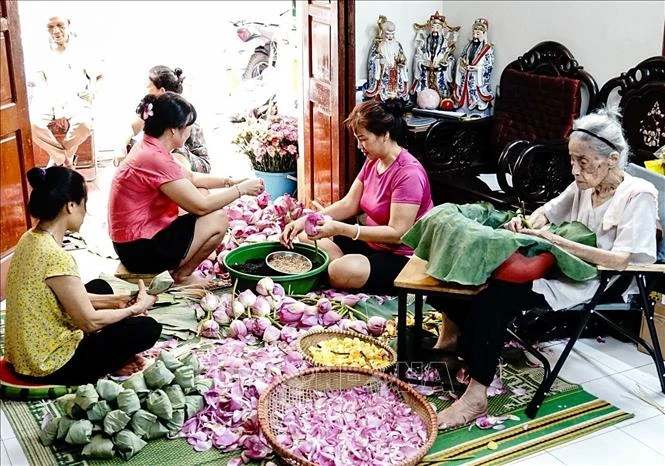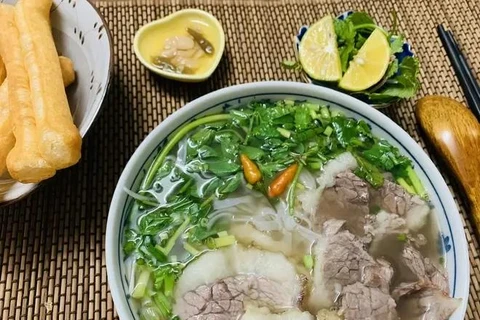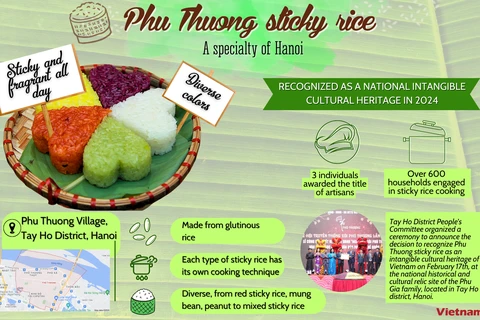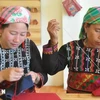
Hanoi (VNA) - The Ministry of Culture, Sports, and Tourism has issued a decision recognising the traditional craft of making lotus-scented tea in Quang An ward, Tay Ho district of Hanoi as a national intangible cultural heritage.
With its long history, and closely associated with the famous West Lake area, the craft has become a symbol of Hanoi's culinary culture.
Lotus-scented tea is a precious product of the Vietnamese people. Since ancient times, locals have skillfully combined Tan Cuong green tea from Thai Nguyen province - the largest tea cultivation area in Vietnam, with Bach Diep lotus grown in the West Lake, creating a distinctive and unique flavour that cannot be found elsewhere.

Quang An is a vast lotus-growing area in Hanoi and also the cradle of the famous lotus-scented tea making craft. Locals have preserved the age-old tradition and been working hard to keep it alive.
According to veteran tea artisans, it takes a great deal of time and efforts to make the best quality lotus-scented tea. The process may seem simple, but to have the best taste, it requires meticulousness and sophistication.
Lotus bulbs are picked from early morning when they are at their purest. Brought home, they must be washed thoroughly to prepare the ingredients for scenting the tea. Due to the meticulous preparation, it takes one to two weeks to complete a batch.
The honour is seen as a motivation for artisans to continue preserving and promoting the cultural heritage of the thousand-year-old capital. It also presents an opportunity to further promote Hanoi's cultural and tourism values to both domestic and international visitors.
With its distinctive flavor and meticulous preparation, enjoying the lotus-scented tea has become an essential part of the tourism experience in Hanoi./.






















